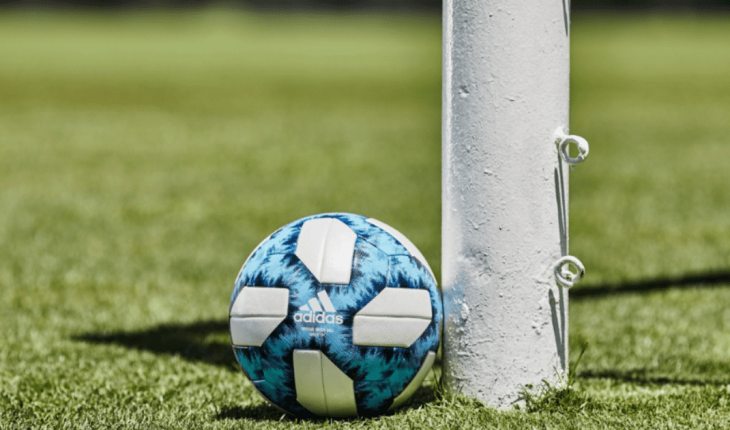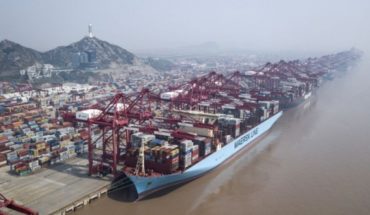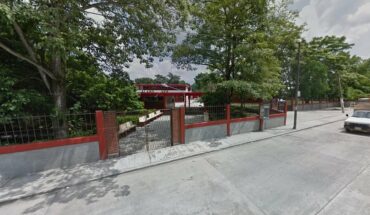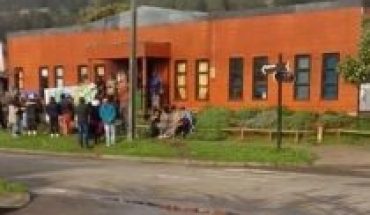Monday, March 16. Colón beat Rosario Central as a visitor on the first date of the Super League Cup. That was the night of last weekend that, already with the stadiums behind closed doors, thousands followed the clubs of their loves through the screens. That was the last day the players ran after the ball. That turned out to be the last game of a Super League Cup that was debut and farewell. That was the day the door of uncertainty opened. An uncertainty that enchants and, for now, does not show the curve of the road for Argentine football to hit the turn. Europe’s Mirror
The coronavirus pandemic (COVID-19) took the reins of a match for which the whole world was unprepared and forced him to retreat into their homes to try to make the defeat by a beating as harmful as possible. In Europe this tactic paid off and, in the face of the decline of cases and deaths after all the suffering, life began to look a little more like that of before the COVID-19 era. That’s how the most important leagues on the Old Continent returned to action after two months of suspension. Germany’s Bundesliga paved the way with a 50-page health protocol that, after the approval of the German government, allowed the start of the League, officiated as a model and was replicated – more aspects, less aspects – by the rest of the countries where the ball also rolled again, for example, Italy, Spain and England.
The mainstay of the protocol is the massive testing on the eve of each match: at least twice a week all involved are swabed, whether players, coaching staff, referees and other members of the German League. If any positive cases are detected, the infected is isolated and local authorities will decide whether to quarantine the rest of the campus, as the criteria vary depending on each region of the country. On the other hand, in the stadiums there can be a maximum of 300 people divided into three areas (grass, grandstand and exterior), to avoid crowding the teams, journalists and the rest of the employees of the club. In addition, visitors must arrive on the court on more than one mic to respect social distance and, among other issues, with the exception of players and the referee, all members of the substitutes’ bench have to wear a beard, while the balls must be disinfected during the match.
After 10 days of individual internships, Barcelona returned to training as a group on 18 May. Photo: Barcelona credit.
And we… are we trained?
Every club is a world apart. Moreover, in Argentine football, where inequalities between institutions – which increase as it falls below – are in sight and, as if that were not enough, they were hit by a pandemic that put their economies in crisis. Therefore, when it comes to sitting down to discuss a list of health guidelines to be met so that the return of the activity is possible, a range of realities that sow doubts open up: Are all clubs eligible to comply with a protocol?” The possibility of making protocols that are met are a long way from reality. Personally, I think in Communications we could eventually adapt to some kind of protocol because we have a club that is located in a good place in the City and with a certain target of members. But I’ve also gone to other clubs where you can’t avoid contagion. So, it seems to me that thinking about starting activities right now is a mistake. In between there are a lot of commercial, economic, football business, player pay, which are part of the problem. But I’m sure River, Boca, San Lorenzo, Velez… they can do whatever they want. And we couldn’t do anything, we could do some things. And I think there are a lot of clubs that couldn’t even have a few things,” mused Jorge Rapaport, one of the members of the Communications Trustees, the Metropolitan B team, in dialogue with Filo.News.
More optimistic is the look of Javier Méndez Cartier, the president of Excursionistas. “I think, in general, promotion clubs are trained. There are some that we have better or worse infrastructure. Regardless of the clubs where there are stadiums or changing rooms with infrastructure more precarious than that of Primera Nacional or Liga Professional, I think we are trained and, above all, we have the permanent support of the AFA”, said the leader of the team that plays in Primera C.In recent hours, the AFA presented a protocol developed by its Medical Department so that the teams can retrain. Aunquand not officially reported, the key point is the tests. Considering that they intend to take five tests a month for each player, the cost would round the 750,000 pesos, a figure too high to pay for several clubs in the Professional League. Not to mention the Alcent, who will have their protocol adapted for each category.
They come back all or none
“The return to training is going to be when our whole country is in Phase 4.” Short and at the foot, Tapia was clear when, after meeting with the Minister of Health of the Nation, Ginés González García, announced that football will not return as long as the country does not improve its epidemiological situation, arguing that the largest number of teams (59%) and players (75%) professionals from the country are located in the Metropolitan Area of Buenos Aires (AMBA), by far the area most affected by the pandemic. In that regard, it explained that this was a fair decision for there to be no sporting advantages, while stating that it would not be responsible to move the virus into the country.
While for these hours the AMBA authorities are assessing to return to Phase 1, reactions to the AFA’s determination were soon emerging and there was crossfire between paths of different convictions. Marcelo Gallardo went to the cross, criticizing the “accelerated decisions” that were made regarding the tournaments and, in statements to radio La Red, said: “We all put the pandemic ahead. Football today is not essential, but from there to cross our arms or not debate possibilities seemed too much to me. There is a lot of desire to be able to activate ourselves gradually with the necessary protocols (…) I see an Argentine football that is clearly going to go in decline.” Aligned on the sidewalk opposite with Nicolás Russo, the president of Lanús, Méndez Cartier considered in dialogue with this medium that “the stance of some actors of Argentine football has been unfortunate, starting with the words of Marcelo Gallardo and some leaders who fought for the return. Because if there is anyone who is harmed by the no return of football, rather than viewers or fans, we are the ones who have the responsibility to keep the clubs open, are the players who live in this industry, the technicians, the referees and the rest of the people linked to football. We are the first interested in him rolling the ball again, but the position of Argentine football, in general, has been of great responsibility.”
“The return to training is going to be when our whole country is in Phase 4,” Tapia said.
Meanwhile, President Alberto Fernández from the outset made it clear that the return of football is not a priority. “Football can wait. First we have to take care of the sick and don’t get sick anymore. This complicates us all, but you have to be patient,” he said late March last year. In one of his last references to respect, already with quarantine extended until June 28, the national representative stated in an interview with TyC Sports that “the state is not there to promote football, which is a professional sport with a lot of financial support”. And he said: “Football we have to handle it cautiously and going back to the public would be crazy. Besides, I don’t know if everyone will be in a position to comply with the protocols, there is also an economic issue at stake.” Under this situation… are we ready for football to return?





